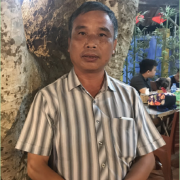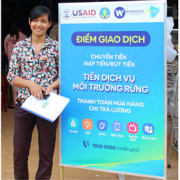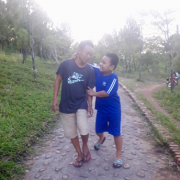Speeches Shim

Mr. Vì Văn Hạnh is Head of Lùn Village in the forested Son La Province. His village, like many others in the province, suffers from a lack of infrastructure, livelihood opportunities, and general poverty. As residents have turned to the forests for a source of income, the forests have increasingly come under pressure and are at risk of overuse. To alleviate this double challenge of preserving the forests and providing income opportunities, the Government of Vietnam developed and implemented the Payment for Forest Environmental Services (PFES) system. Through the PFES system, hydropower companies and other downstream forest service users pay upstream forest communities to protect their forests and watersheds against deforestation and degradation, to ensure the companies have a stable water supply to produce electricity. In Son La province, the annual total PFES revenue is approximately $5 million (VND 120 billion), which is disbursed in payments to around 2,200 villages to protect their forests. One of the key objectives of these payments is to support local livelihoods in order to reduce pressure on forests for income and to provide other opportunities, through a transparent and community-based decision-making process. Community savings funds are one way PFES can help improve the villages’ economic situations and provide residents access to loans to start local businesses. However, many village leaders, including Mr. Hạnh, had not followed through on that goal and instead made decisions on their own about how to use the funds.

Everyone has felt the effects of COVID-19, even without contracting the virus. With business and school closures, social distancing, and mask requirements, all members of society have had to make significant behavior changes. For children with autism or other developmental difficulties, adjustments such as wearing a mask and more frequent hand washing can be particularly frustrating. Additional challenges, including lockdowns, adaptations to regular school and social gatherings, and worries about illness and health care have also strained mental health of both parents and children. In response, USAID/PATH Healthy Markets, and A365, an organization to provide support and resources for children with developmental disabilities, collaborated to develop and launch an awareness campaign to help children and their parents cope with required behavior changes because of COVID-19. The social media campaign ran from August through September 2020 and featured COVID-19 prevention messages and tools for families with autistic children and other developmental challenges.

Mrs. Dieu Thi Trang, a Chau Ma ethnic minority, grew up in the Cat Tien region in Lam Dong Province of Vietnam's Central Highlands. From her childhood, and now as a married mother of two, Mrs. Trang and her family have relied on the Cat Tien forest for their income. To lessen dependence on forests and motivate community members to sustainably protect forests where they live, in 2010 the Government of Vietnam implemented the Payment for Forest Environmental Services (PFES). Under this system, hydropower companies pay forest community members, like Mrs. Trang’s family, to protect watersheds to ensure stable water supply for electricity production. For Mrs. Trang’s case, her family receives nearly $1,100 (24 million VND) per year through PFES to protect and care for Cat Tien’s forests.

Thien Nhan is an eight year-old boy with autism from Lang Co, Thua Thien Hue province. His autism has made it difficult for him to control his behavior, often resorting to tantrums and scratching. His parents, Mr. Nguyen and Ms. Phuong, have struggled to help him on their own and their village doesn’t have any school support or intervention centers for autistic children. At great expense they enrolled him in the closest intervention facility, located 70km away in Hue, but Nhan’s disruptive behavior continued. Sometimes his behavior was so challenging that the neighbors could hear and his parents worried about misperceptions. They kept searching for help and ideas, and through a Facebook group for parents with autistic children, Mr. Nguyen found out about USAID’s I-Thrive project. The I-Thrive organization provides training and coaching for parents of children with intellectual and developmental disabilities, including autism. Excited and hopeful, Mr. Nguyen enrolled.
When COVID-19 first hit Vietnam, 5th-year medical student Dương Thuỳ Linh felt confused, scared, and unprepared. Knowing she was a medical student of Thai Nguyen University of Medicine and Pharmacy, many friends and relatives looked to her for advice and information about the coronavirus, but she couldn’t provide help, responding, “it is a novel viral strain, I don’t know either.”

Comment
Make a general inquiry or suggest an improvement.